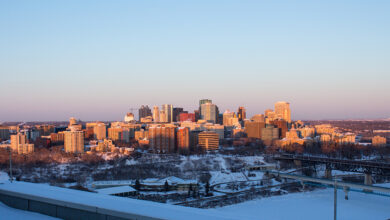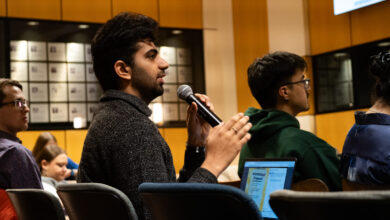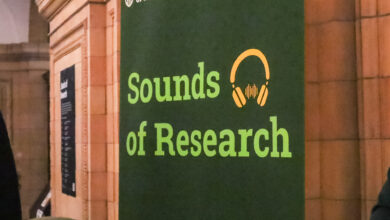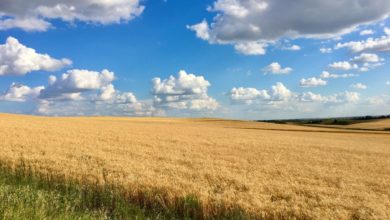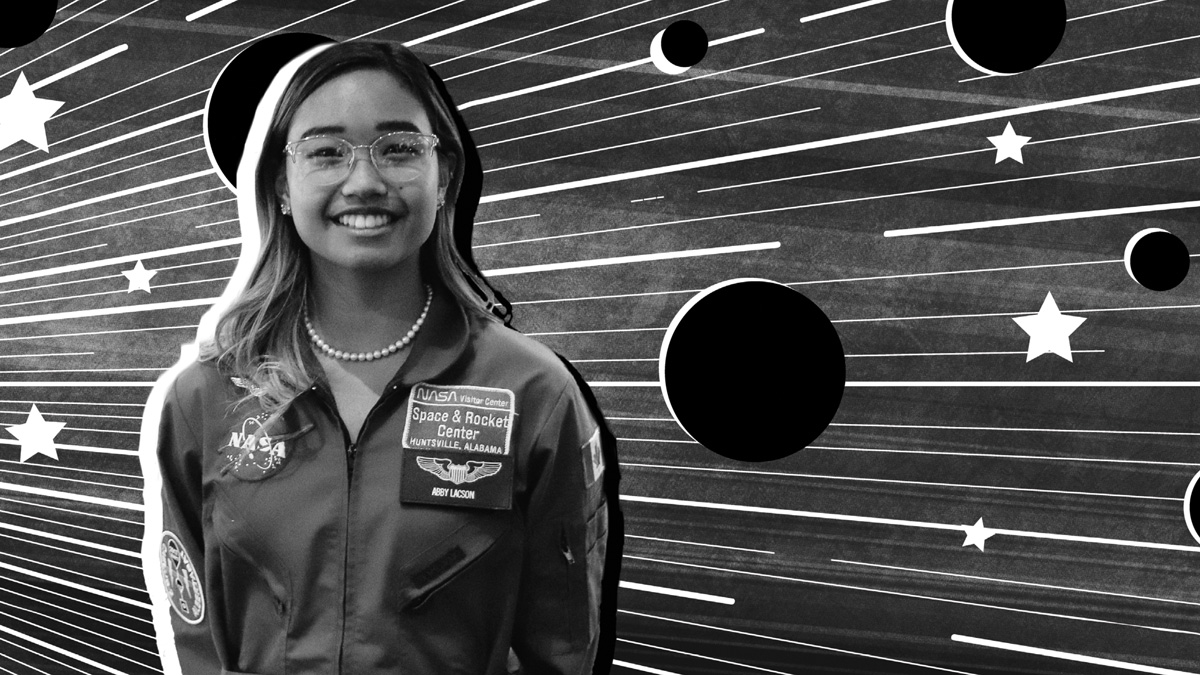 Olivia DeBourcier, Alex Patterson
Olivia DeBourcier, Alex PattersonAbby Lacson isn’t the typical university student. Sure, she enjoys casually riding her penny board through the engineering quad on the way to class, or getting down on the dance floor during Just Dance Club events. But her career goals lie higher than the top floor of DICE.
Lacson wants to be an astronaut. In her second year of mechanical engineering, she is a member of the AlbertaSat mechanical team. AlbertaSat is a student group that has constructed the province’s first satellite: Ex-Alta 1. Designed and built on campus, it was made to collect and deliver data on space weather patterns. This May, it launched from the International Space Station (ISS). Lacson and the rest of the AlbertaSat team, fresh off their success of Ex-Alta 1, have already begun designing their second CubeSat.
When she was 18, Lacson went to space camp at the U.S. Space and Rocket Centre in Alabama where aspiring astronauts go through mission simulations, and learn about what it takes to be an astronaut.
We sat down with Lacson to ask her about her time at space camp, her experiences as a woman in engineering, and her plans for the future.
The Gateway: When did you become interested in space science?
Abby Lacson: It was when I went camping for the first time in my life. I went with a family friend and her friends. We snuck out of the tent and we were looking to play some games in the dark but we just ended up watching the stars. And I thought, this is actually really nice, I want to be an aerospace engineer. I want to get up there. So that was my initial moment when I knew that I wanted to go into outer space.
How did you get involved with AlbertaSat?
I heard about AlbertaSat in my first year. I started as a media editor. I just entered the mechanical team this year. What I’m designing is actually for the next satellite. I help with thermal research: how to design the satellite itself, how to make it more efficient in terms of where the power goes and where the heat transfers to in other mechanisms in the CubeSat.
Can you tell me about your experience at the U.S. Space and Rocket Centre’s
space camp?
Every day we had three classes. We would learn about U.S. and Russian space history, what the parts of a rocket are, and about different space companies. We listened to a talk from a former astronaut, and we got to design our own rockets. We did three mission simulations. So we would actually go to a full-size replica of the International Space Station (ISS), the Discovery Rocket, or a Mars base in an Orion capsule. Our first mission I was on the ISS. I was a mission specialist, that’s what they call people who don’t actually fly the capsule and mostly do scientific experiments. I was finding ways to recycle water on the space station. The second mission was actually really special as a Canadian because I got to go up on the Canadarm2 replica. I also learned how to scuba dive in a 24-foot swimming pool. At the bottom, we would shoot rockets from a launcher, and play with a bowling ball. Because it’s neutral buoyancy so it would make everything seem so light so I would spin the bowling ball on my finger.
What path do you plan to take in order to achieve this goal of getting to space?
I’ll graduate from U of A first. I still do want to do research with AlbertaSat, making more efficient CubeSats and solar panels. Or maybe I could even find a way to make the structure absorb energy and keep it. I want to go to CalTech in Pasadena for my Master’s. Then I want to work for SpaceX. I just want to be part of that future and new space exploration. I want to design those rockets and really get to know them.
What is your experience as a woman in engineering?
In my first year, I tried not to ask questions because I was scared to be wrong and have people think, “Oh she’s a girl, that’s why she’s wrong.” One of my insecurities is that I don’t like people to think I’m failing. But I’ve learned, if I’m going to ask a question, maybe someone else has that question. So now I’ll put up my hand and not be afraid to ask, “How does that work?”
Having the reputation of wanting to be an astronaut is really big. Because in the future what if it doesn’t happen, right? So I made the decision, if anything, you don’t know until you try. I want to do this and really go for it. It’s my dream.

